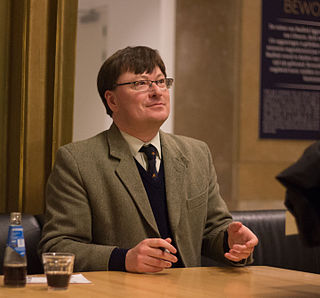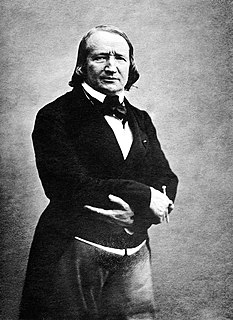A Quote by D. H. Lawrence
Humanity is less, far less than the individual, because the individual may sometimes be capable of truth, and humanity is a tree of lies.
Related Quotes
Why continue? Because we must. Because we have the call. Because it is nobler to fight for rationality without winning than to give up in the face of continued defeats. Because whatever true progress humanity makes is through the rationality of the occasional individual and because any one individual we may win for the cause may do more for humanity than a hundred thousand who hug their superstitions to their breast.
People knew less of each other, perhaps, but they felt more free of each other, and so were more individual. The entire world was not for them only a push or a switch away. Strangers were strange, and sometimes with an exciting, beautiful strangeness. It may be better for humanity that we should communicate more and more.
But nothing is better than a truth which appears not to have the semblance of truth. There is always something incomprehensible about the great heroic deeds performed by humanity because they rise so far beyond the mediocre measure of mere mortals; but it is always only because of the incredible feats that human beings have accomplished that humanity recovers its faith in itself.
Humanity today is not safe in the presence of humanity. The old cannibalism has given way to anonymous action in which the killer and the killed do not know each other, and in which,indeed, the very fact of mass death has the effect of making mass killing less reprehensible than the death of a single individual. In short, we have evolved in every respect except our ability to protect ourselves against human intelligence. Our knowledge is vast but does not embrace the workings of peace.
At Rome there were nothing even vaguely resembling modern political parties - although given the stifling impact of these, this may well have made it more rather than less democratic than many countries today - and each candidate for office competed as an individual. Only rarely did they advocate specific policies, although commenting on issues of current importance was more common. In the main voters looked more for a capable individual who once elected could do whatever the State required.
I still believe that, in the long run, the aggregate of the decisions of individual businessmen, exercising individual judgment in a free economy, even if often mistaken, is likely to do less harm than the centralized decisions of a Government; and certainly the harm is likely to be counteracted faster. As I said earlier in this debate, our economic medicine may be painful but it is fast and powerful because it can act freely.
To blindly trust government is to automatically vest it with excessive power. To distrust government is simply to trust humanity - to trust in the ability of average people to peacefully, productively coexist without some official policing their every move. The State is merely another human institution - less creative than Microsoft, less reliable than Federal Express, less responsible than the average farmer husbanding his land, and less prudent than the average citizen spending his own paycheck.
We can't say that we believe in each other's fundamental humanity, and then turn a blind eye to the reality of each other's existence, and the truth of each others' hearts. We must be allies and we must be allies in this business, because to be represented is to be humanized, and as long as anyone anywhere is being made to feel less human, our very definition of humanity is at stake, and we are all vulnerable.
The study of social progress is to-day not less needed in literature than
is the analysis of the human heart. We live in an age of universal
investigation, and of exploration of the sources of all movements.
France, for example, loves at the same time history and the drama,
because the one explores the vast destinies of humanity, and the other
the individual lot of man. These embrace the whole of life. But it is the
province of religion, of philosophy, of pure poetry only, to go beyond
life, beyond time, into eternity.
the solution to racism lies in our ability to see its ubiquity but not to concede its inevitability. It lies in the collective and institutional power to make change, at least as much as with the individual will to change. It also lies in the absolute moral imperative to break the childish, deadly circularity of centuries of blindness to the shimmering brilliance of our common, ordinary humanity.






































